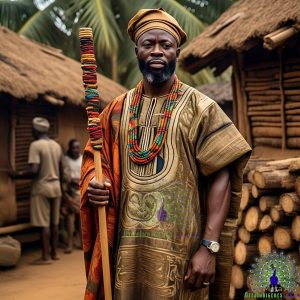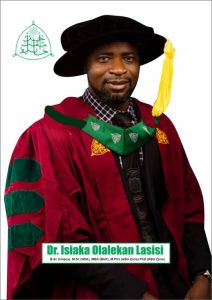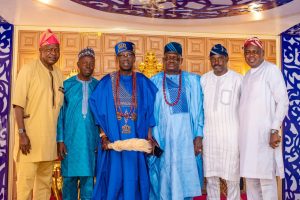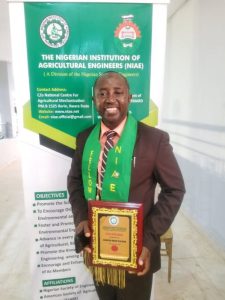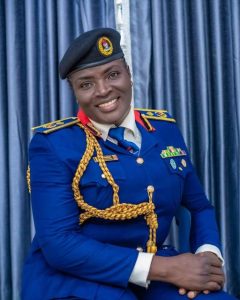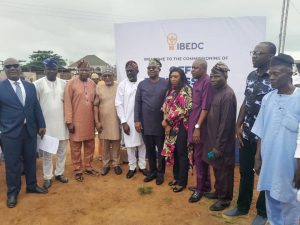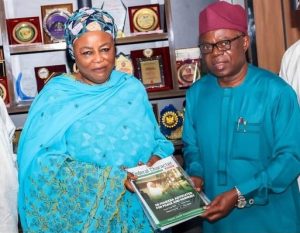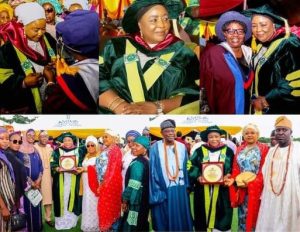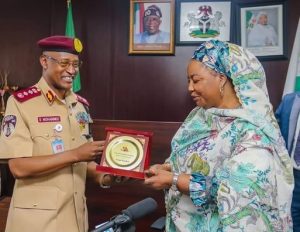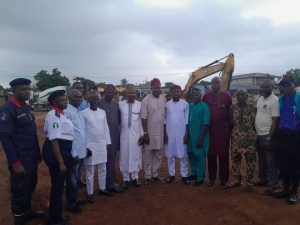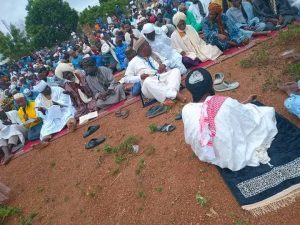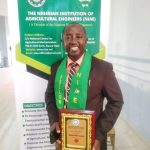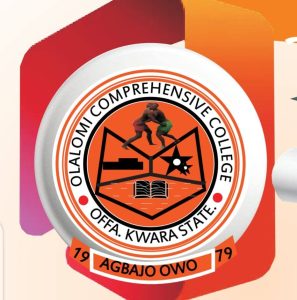In the vibrant tapestry of Offa’s history, few figures stand out as prominently as Hon. Justice Olabanji Orilonise. His life, marked by dedication, resilience, and excellence, serves as an inspiring narrative for many. From his early beginnings in Ghana to his significant contributions to Nigeria’s judiciary, Justice Orilonise’s journey is a testament to hard work and commitment.
Early Life and Background
Birth and Family
Olabanji Orilonise was born in Ghana in 1941. His father, Alhaji Raji Ike-Olohun omo Ayiloye Oriolonise, hailed from Esinkin’s Compound, Ojomu Ward, Offa. His mother, Alhaja Umuani Moyaade Ike-Olohun, was from Agbopa’s Compound in the same ward. These roots in Offa laid a strong foundation for his identity and future contributions.
Parents’ Occupation
His parents’ professions mirrored the diverse entrepreneurial spirit of their era. His father was a diamond merchant, navigating the complexities of the trade, while his mother was a petty trader dealing in foodstuffs. Their hardworking nature undoubtedly influenced young Olabanji’s values and work ethic.
Primary Education
Schooling in Ghana
Olabanji’s early education began at the English Church Mission Primary School in Awaso, Ghana, from 1950 to 1952. This initial schooling phase was crucial in shaping his academic journey.
Return to Offa, Nigeria
In 1953, Olabanji returned to Nigeria, where he continued his education at Saint Mark’s Primary School in Offa until 1958. This period solidified his ties to his homeland and laid the groundwork for his future educational pursuits.
Secondary Education
Admission to Saint Paul’s College, Zaria
In January 1959, Olabanji was admitted to Saint Paul’s College, Wusassa, Zaria, for his secondary education. This institution was pivotal in broadening his academic and social horizons.
Private Studies for Advanced Level
After leaving Saint Paul’s College in 1963, Olabanji pursued advanced studies privately. This period of self-study demonstrated his determination and self-discipline, preparing him for higher education.
University Education
Admission to Ahmadu Bello University
In 1967, Olabanji was admitted to Ahmadu Bello University, Zaria, to study law. His academic diligence paid off when he graduated with an LL.B. (Hons.) degree in June 1970, a significant milestone in his legal career.
Legal Training
Nigerian Law School
Following his university education, Olabanji attended the Nigerian Law School in Lagos from October 1970 to June 1971. This institution provided the professional training necessary for a successful legal career.
Call to the Nigerian Bar
On June 18, 1971, Olabanji was called to the Nigerian Bar, officially becoming a Barrister and Solicitor of the Supreme Court of Nigeria. This achievement marked the beginning of his professional journey in law.
Early Career
Cadastral Officer in the Survey Department
Before fully embarking on his legal career, Olabanji worked as a Cadastral Officer in the Survey Department of the Northern Nigeria Ministry of Town and Country Planning in Kaduna South in 1964. This role, which he held until 1967, showcased his versatility and commitment to public service.
Attendance at Survey School, Zaria
From 1966 to 1967, he attended the Survey School in Zaria, furthering his technical education and equipping him with skills that would prove valuable throughout his career.
Transition to Legal Practice
Private Legal Practice in Gusau and Sokoto
In October 1971, Olabanji began his private legal practice, initially based in Gusau and later in Sokoto, both in the then North Western State of Nigeria. His practice expanded over time, covering areas such as Birnin-Kebbi, Minna, Kano, Kaduna, Ibadan, Zaria, and Jos.
Expansion of Practice Across Northern Nigeria
His extensive legal practice across Northern Nigeria not only broadened his professional experience but also established him as a respected figure in the legal community.
Judicial Service Commission and NBA
Brief Tenure in Judicial Service Commission
From 1984 to 1985, Olabanji served briefly as a member of the Judicial Service Commission in Kwara State, contributing to the administration of justice at a higher level.
Chairmanship of Nigerian Bar Association in Sokoto
His leadership skills were further recognized when he served as the Chairman of the Nigerian Bar Association in Sokoto, showcasing his commitment to the legal profession and its development.
Appointment as a High Court Judge
Initial Posting to Omu-Aran Judicial Division
On May 5, 1986, Olabanji was appointed a Judge of the High Court of Kwara State, initially posted to the Omu-Aran Judicial Division. This appointment marked the beginning of a distinguished judicial career.
Subsequent Reposting to Ilorin Judicial Division
Later, he was reposted to the Ilorin Judicial Division, where he continued to serve with distinction, handling complex cases and contributing to the judiciary’s integrity.
Tribunal Services
Membership in Local Government Election Petition Tribunal
From 1993 to 1997, he served as a member of the Kwara State Local Government Election Petition Tribunal, ensuring fair and just electoral processes at the local level.
Chairmanship of the Armed Robbery Tribunal
In 2003, he was appointed Chairman of the Armed Robbery Tribunal in Kwara State, demonstrating his capability in handling high-stakes and sensitive cases.
National Assembly Election Petition Tribunal
Appointment as Chairman
In May 2007, Olabanji was appointed Chairman of the National Assembly, Governorship, and State House of Assembly Election Petition Tribunal in Benin-City, Edo State. This role was crucial in upholding the democratic process.
Voluntary Relinquishment upon Retirement
He voluntarily relinquished this position on February 22, 2008, upon reaching the mandatory retirement age of 65 for High Court Judges, concluding a distinguished career in the judiciary.
Personal Life
Marriage and Family
Olabanji is happily married, and his marriage is blessed with both male and female children, some of whom are also happily married. His family life reflects his personal values and commitment to nurturing the next generation.
Legacy and Influence
His legacy extends beyond his professional achievements, influencing many within and outside the legal community through his dedication, integrity, and service.
Achievements and Contributions
Key Legal Contributions
Throughout his career, Justice Olabanji made significant legal contributions, particularly in ensuring justice and fairness in the judicial process. His work in various tribunals and courts left a lasting impact on the legal landscape.
Influence on Judiciary
His influence on the judiciary, especially in Kwara State, is notable. His decisions and leadership within the legal community have inspired many young lawyers and judges, setting a standard for judicial excellence.
Hon. Justice Olabanji Orilonise’s life and career reflect the values of dedication, resilience, and service. His contributions to the legal field and the judiciary are profound, and his legacy continues to inspire and influence many. His journey from Ghana to becoming a prominent figure in Nigeria’s judiciary is a testament to his hard work and unwavering commitment to justice.


